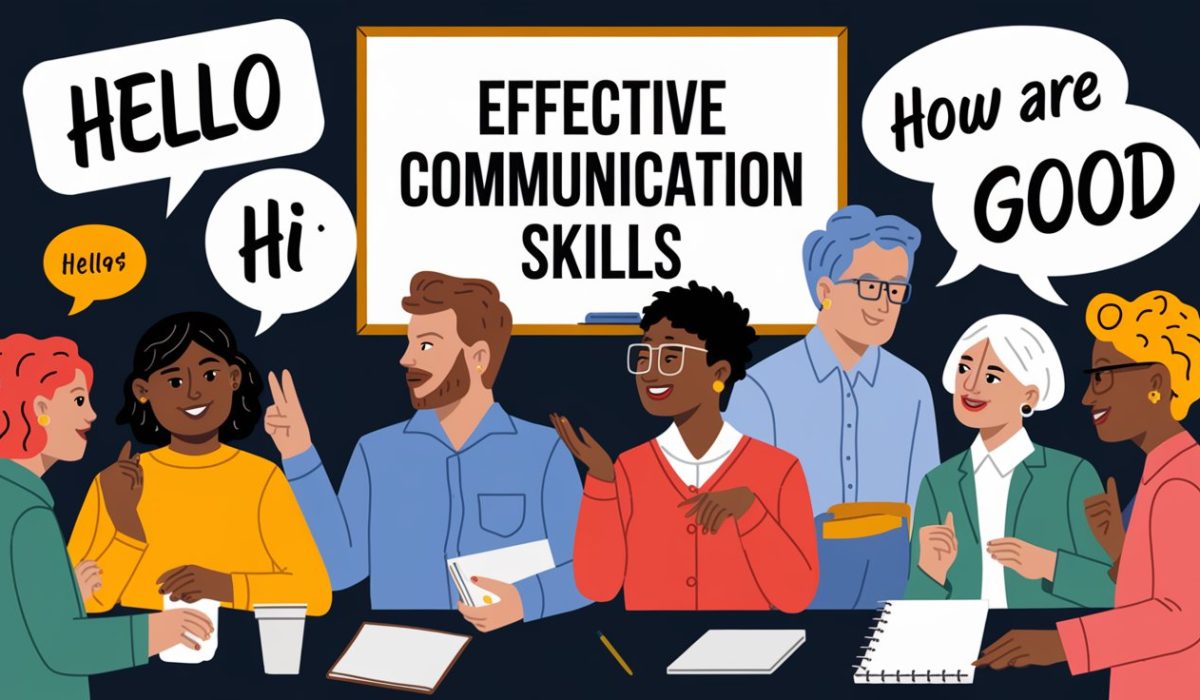Effective Communication Skills: Key to Success in Personal and Professional Life
Effective communication is essential in every aspect of life, whether in personal relationships or professional settings. It allows us to express our thoughts, understand others, and foster healthy interactions. In this post, we’ll explore practical tips to enhance your communication skills.
1. Active Listening
Active listening is the cornerstone of effective communication. It involves fully focusing on the speaker, understanding their message, and responding thoughtfully. To practice active listening, maintain eye contact, nod in acknowledgment, and avoid interrupting. Paraphrasing what the speaker has said can also demonstrate that you are engaged and understand their perspective.
2. Clarity and Conciseness
When communicating, strive for clarity and conciseness. Avoid jargon or overly complex language that may confuse your audience. Instead, use simple words and direct sentences to convey your message. Being clear and to the point helps ensure that your audience understands your message without ambiguity.
3. Non-Verbal Communication
Non-verbal communication plays a significant role in how we convey our messages. Body language, facial expressions, and gestures can complement or contradict your spoken words. Be aware of your non-verbal cues and ensure they align with your message. For instance, maintaining an open posture can signal that you are approachable and receptive.
4. Empathy and Understanding
Effective communicators practice empathy by trying to understand the emotions and perspectives of others. Show genuine interest in others’ feelings and viewpoints, which fosters a supportive environment. When people feel understood, they are more likely to engage in open and honest communication.
5. Ask Questions
Asking questions is a powerful tool for enhancing communication. It encourages dialogue and shows that you value the other person’s input. Use open-ended questions to invite deeper discussions and to clarify any points that may be unclear. This not only helps you gain more information but also demonstrates your engagement in the conversation.
6. Adapt Your Communication Style
Different situations and audiences require different communication styles. Be flexible and adapt your approach based on the context and the people involved. For example, you may need to be more formal in a business meeting but relaxed and informal when chatting with friends. Tailoring your communication helps build rapport and ensures your message is well-received.
7. Constructive Feedback
Providing and receiving constructive feedback is essential for effective communication. When giving feedback, focus on specific behaviors rather than personal attributes. Use “I” statements to express how certain actions affect you, and offer suggestions for improvement. When receiving feedback, remain open-minded and avoid becoming defensive. View feedback as an opportunity for growth.
8. Practice Public Speaking
Public speaking is a valuable skill that enhances your overall communication abilities. Seek opportunities to speak in front of groups, whether in formal settings or casual gatherings. Practice will help you become more comfortable expressing your ideas and boost your confidence. Consider joining organizations like Toastmasters to improve your public speaking skills.
Conclusion
Effective communication skills are essential for building strong relationships, fostering collaboration, and achieving success in various areas of life. By practicing active listening, clarity, empathy, and adaptability, you can enhance your communication abilities. Remember that communication is a two-way street; it involves both expressing yourself and understanding others. Start implementing these tips today to become a more effective communicator.
